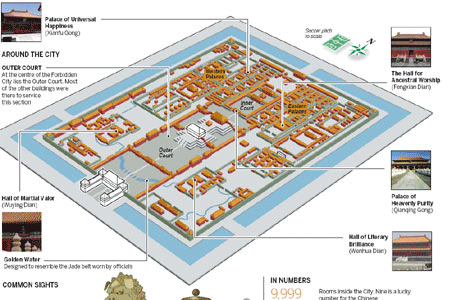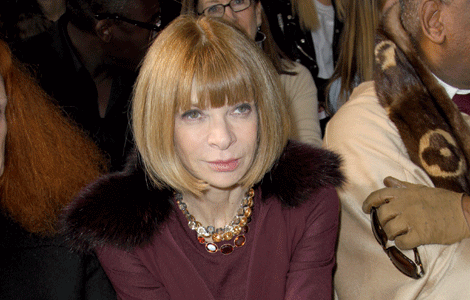Africa
Nigeria bank chief sees yuan becoming reserve currency
Updated: 2011-09-06 22:23
(Xinhua)
BEIJING - Nigeria plans to invest 5 percent to 10 percent of its foreign exchange reserves in China's currency, the renminbi (RMB) or yuan, the country's central bank governor Lamido Sanusi said on Tuesday.
Nigeria has been discussing with the People's Bank of China (PBOC), the Chinese central bank, to allow it to invest its reserves in China's interbank bond market, as well as in the offshore yuan market in Hong Kong, Sanusi said.
"We will continue with our efforts and are close to...taking the RMB as part of Nigeria's foreign exchange reserve currencies," Sanusi said at a press briefing in Beijing.
Sanusi is on a visit to Beijing and is expected to meet PBOC Governor Zhou Xiaochuan to discuss potential cooperation on monetary policy and foreign exchange.
Currently, the Nigerian government has kept its reserves in three major currencies -- the US dollar, the sterling and the euro.
"A few years ago, we made a strategic decision to consider adding the renminbi to the basket of reserves," Sanusi said.
Nigeria's foreign exchange reserves total $32 billion to $36 billion, with 79 percent currently invested in US dollars, Sanusi said.
It's "inevitable" that the yuan will become an international currency since China is the second largest economy in the world, he said.
The recent downgrade of US debt as well as the debt turmoil in the Europe added to the urgency of diversifying Nigeria's foreign exchange reserves, he added.
China has a large share of the world trade and is today a major exporter and manufacturer, as well as a major importer of commodities from developing countries, but these are not reflected in the use of its currency internationally, he said.
Over the last 12 months, Sanusi has seen the Chinese currency become more easily convertible and more widely used for trade and investment in the offshore RMB market in Hong Kong.
"A number of countries are participating in the RMB market in Asia and the Latin America, and we are pleased to be the first African country to take the step of joining this group of countries that recognize the importance of China to the world economy," Sanusi said.
According to him, Nigeria is the second largest economy on the African continent. Its gross domestic product (GDP) has been growing at an average annual rate of 7 percent over the last decade and boasts a population of 150 million.
He said Nigeria is planning a swap arrangement with the PBOC to give Nigerians access to the RMB because of possibilities of settlement of transactions in RMB and of attracting Chinese to invest in Nigeria.
Last year, China's loans and exports to Nigeria exceeded $7 billion, while Nigeria exported $1 billion of crude oil, Sanusi said.
"Today in Nigeria, the RMB is being exchanged on the street for the naira (Nigerian currency) so the market is already ahead of regulator, we are just going to catch up with them officially getting involved in the transactions," he explained.
Sanusi, whose father was Nigeria's first ambassador to China in 1972, said he looks forward to China investing more in his country, especially in the energy, agriculture and processing sectors.
A large number of Chinese companies are now operating in Nigeria, largely in manufacturing, while a number of Nigerians come to China to trade, Sanusi said.
He expects a continued gradual appreciation of the yuan, but if the European and US economies continue to be weak,the yuan's appreciation may slow.
He also said Nigeria's currency peg has been central to price stability, and the country expects to maintain exchange-rate stability, but won't defend the naira's peg to the dollar "at all costs."
E-paper

Unveiling hidden treasures
The Forbidden City, after the Great Wall, is the most recognized tourist site in China.
Short and sweet
Game for growth
Character reference
Specials

China at her fingertips
Veteran US-China relations expert says bilateral ties have withstood the test of time

The myth buster
An outsider's look at china's leaders is updated and expanded

China in vogue
How Country captured the fascination of the world's most powerful fashion player
